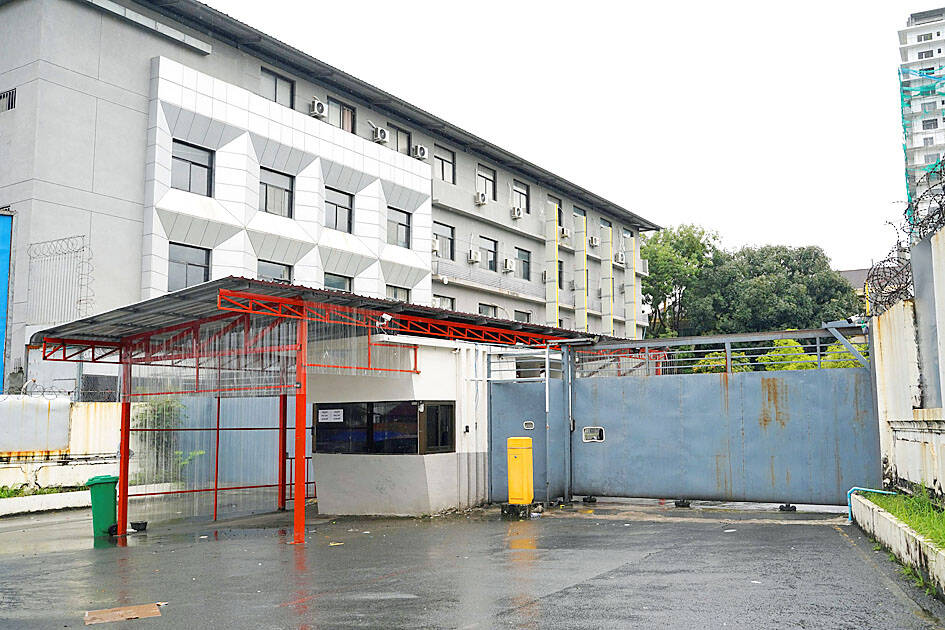The government has so far brought back 246 Taiwanese who had been lured to Cambodia by fraud rings, the Ministry of Foreign Affairs said yesterday.
However, there are still 393 Taiwanese stranded in the Southeast Asian country, Department of East Asian and Pacific Affairs deputy head Fan Hou-lu (范厚祿) told a news conference, citing last week’s figures.
The Criminal Investigation Bureau in a statement on Saturday said that 60 of the 393 Taiwanese had been freed from their jobs and were awaiting assistance to return home.

Photo: Reuters
The numbers were provided by Taiwan’s representative office in Ho Chi Minh City, Vietnam, which handles Cambodian affairs in the absence of a representative office there, Fan said yesterday.
The office has over the past few week received fewer requests for help from Taiwanese in Cambodia, he said.
From Aug. 26 to Sept. 8, the office received 133 such requests, but from Sept. 8 to Friday, the number dropped to 51, Fan said.
The government on Aug. 8 appointed a task force to help Taiwanese falling prey to job scams in Cambodia and to bring home those stranded there.
The task force has also been working to raise public awareness of the risks related to work and travel in Cambodia, the Executive Yuan has said.
As part of those efforts, airport police have been warning travelers to Cambodia about the reported job scams there.

Alain Robert, known as the "French Spider-Man," praised Alex Honnold as exceptionally well-prepared after the US climber completed a free solo ascent of Taipei 101 yesterday. Robert said Honnold's ascent of the 508m-tall skyscraper in just more than one-and-a-half hours without using safety ropes or equipment was a remarkable achievement. "This is my life," he said in an interview conducted in French, adding that he liked the feeling of being "on the edge of danger." The 63-year-old Frenchman climbed Taipei 101 using ropes in December 2004, taking about four hours to reach the top. On a one-to-10 scale of difficulty, Robert said Taipei 101

Nipah virus infection is to be officially listed as a category 5 notifiable infectious disease in Taiwan in March, while clinical treatment guidelines are being formulated, the Centers for Disease Control (CDC) said yesterday. With Nipah infections being reported in other countries and considering its relatively high fatality rate, the centers on Jan. 16 announced that it would be listed as a notifiable infectious disease to bolster the nation’s systematic early warning system and increase public awareness, the CDC said. Bangladesh reported four fatal cases last year in separate districts, with three linked to raw date palm sap consumption, CDC Epidemic Intelligence

Two Taiwanese prosecutors were questioned by Chinese security personnel at their hotel during a trip to China’s Henan Province this month, the Mainland Affairs Council (MAC) said yesterday. The officers had personal information on the prosecutors, including “when they were assigned to their posts, their work locations and job titles,” MAC Deputy Minister and spokesman Liang Wen-chieh (梁文傑) said. On top of asking about their agencies and positions, the officers also questioned the prosecutors about the Cross-Strait Joint Crime-Fighting and Judicial Mutual Assistance Agreement, a pact that serves as the framework for Taiwan-China cooperation on combating crime and providing judicial assistance, Liang

US climber Alex Honnold left Taiwan this morning a day after completing a free-solo ascent of Taipei 101, a feat that drew cheers from onlookers and gained widespread international attention. Honnold yesterday scaled the 101-story skyscraper without a rope or safety harness. The climb — the highest urban free-solo ascent ever attempted — took just more than 90 minutes and was streamed live on Netflix. It was covered by major international news outlets including CNN, the New York Times, the Guardian and the Wall Street Journal. As Honnold prepared to leave Taiwan today, he attracted a crowd when he and his wife, Sanni,